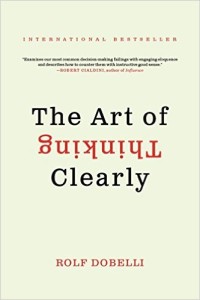Ways-To-Take-Charge Blogging for Business

The article “15 Ways to Take Charge of Your Care”, cover story of December’s AARP Bulletin, is a very fine example for blog content writers. Why?
- It uses a numbered list, offering 15 detailed tips for saving time and money on healthcare. As Maria Konnikova remarks in the New Yorker Magazine, “Lists spatially organize information, helping create an easy reading experience.” Back in 2011, psychologists Messner and Wanke concluded that we feel better when the amount of conscious work we have to do in order to process information is reduced. We are drawn to a list intuitively, Konnikova points out, and we process it more efficiently. From all indications, I teach business blog content writers, Google loves bulleted lists, too.
- The information in the article was specifically chosen because the topic is of interest for target readers (seniors, in the case of AARP). “Briefly,” says Jim Connolly of Jim’s Marketing Blog, “here’s how content marketing works: You build and market a website and stock it with free information that has real value to your prospective clients.”
- The advice is highly specific, including filling prescriptions at a preferred pharmacy within your insurance network and finding out precisely which generic dosages and forms qualify for the $4 big box store and supermarket discount price. In blogging for business, every tip should be helpful in converting online searchers into customers or clients. That means content writers must invest the effort to understand customers’ needs before making the “pitch”.
- The entire thrust of the article is empowerment for the consumer, rather than promoting the interests of the sponsoring company. Business blogs should be closer to advertorials than to ads. We content writers must satisfy prospects’ need to control the situation, going right to the heart of any possible customer fears or concerns and addressing negative assumption questions (before they’ve been asked!).
Offer information in your business blog that offers ways for readers to take charge!

 “You create community by having conversations with people who are excited about the same thing as you are,” says Elizabeth Gerber, associate professor of design at Northwestern University. Gerber is one of many scholars exploring what really compels people to give to other people online through crowdfunding. As much as crowdfunding is a modern economic phenomenon, writes
“You create community by having conversations with people who are excited about the same thing as you are,” says Elizabeth Gerber, associate professor of design at Northwestern University. Gerber is one of many scholars exploring what really compels people to give to other people online through crowdfunding. As much as crowdfunding is a modern economic phenomenon, writes 


Follow us online!